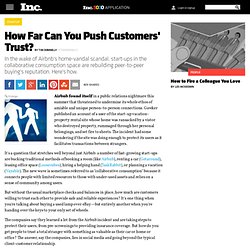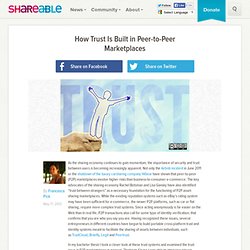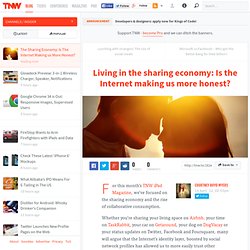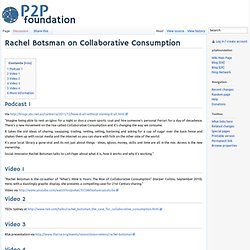

Start-ups Changing Collaborative Consumption. Airbnb found itself in a public relations nightmare this summer that threatened to undermine its whole ethos of amiable and unique person-to-person connections.

Gawker published an account of a user of the start-up vacation-property rental site whose home was ransacked by a vistor who destroyed property, rummaged through her personal belongings, and set fire to sheets. The incident had some wondering if the site was doing enough to protect its users as it facilitates transactions between strangers. It's a question that stretches well beyond just Airbnb: a number of fast-growing start-ups are bucking traditional methods of booking a room (like Airbnb), renting a car (Getaround), leasing office space (Loosecubes), hiring a helping hand (TaskRabbit), or planning a vacation (Vayable). The new wave is sometimes referred to as "collaborative consumption" because it connects people with limited resources to those with under-used assets and relies on a sense of community among users.
How Trust Is Built in Peer-to-Peer Marketplaces. As the sharing economy continues to gain momentum, the importance of security and trust between users is becoming increasingly apparent.

Not only the Airbnb incident in June 2011 or the shutdown of the luxury carsharing company HiGear have shown that peer-to-peer (P2P) marketplaces involve higher risks than business-to-consumer e-commerce. The key advocates of the sharing economy Rachel Botsman and Lisa Gansky have also identified “trust between strangers” as a necessary foundation for the functioning of P2P asset-sharing marketplaces. While the existing reputation systems such as eBay’s rating system may have been sufficient for e-commerce, the newer P2P platforms, such as car or flat sharing, require more complex trust systems.
Since acting anonymously is far easier on the Web than in real life, P2P transactions also call for some type of identity verification, that confirms that you are who you say you are. Here are some takeaways from my research: The Sharing Economy: Is The Internet Making us More Honest? For this month’s TNW iPad Magazine, we’ve focused on the sharing economy and the rise of collaborative consumption.

Whether you’re sharing your living space on Airbnb, your time on TaskRabbit, your car on Getaround, your dog on DogVacay or your status updates on Twitter, Facebook and Foursquare, many will argue that the Internet’s identity layer, boosted by social network profiles has allowed us to more easily trust other human beings. “If you told me two years ago that I would be letting complete strangers into my home, I would have laughed.
Or, if you told me I could learn something valuable from someone I pass on the street. But, what you see today is a unique trust between complete strangers that didn’t exist before. I think that’s the most exciting thing about collaborative consumption – believing that people are inherently good,” says Mike Karnjanaprakorn, the founder of Skillshare, an education platform where users can earn money sharing their skills with others. Rachel Botsman on Collaborative Consumption. Via "Imagine being able to rent an igloo for a night or don a cream sports coat and hire someone's personal Ferrari for a day of decadence.

There's a new movement on the rise called Collaborative Consumption and it's changing the way we consume. It takes the old ideas of sharing, swapping, trading, renting, selling, bartering and asking for a cup of sugar over the back fence and shakes them up with social media and the internet so you can share with folk on the other side of the world. It's your local library a gone viral and its not just about things - ideas, igloos, money, skills and time are all in the mix.
Access is the new ownership. Social innovator Rachel Botsman talks to Lish Fejer about what it is, how it works and why it's working. " "Rachel Botsman is the co-author of "What's Mine is Yours: The Rise of Collaborative Consumption" (Harper Collins, September 2010). Video via TEDx Sydney at RSA presentation via Wired 2011 presentation via. Collaborative Consumption, Trust and the Evolution of Credit.
Featured Partners.